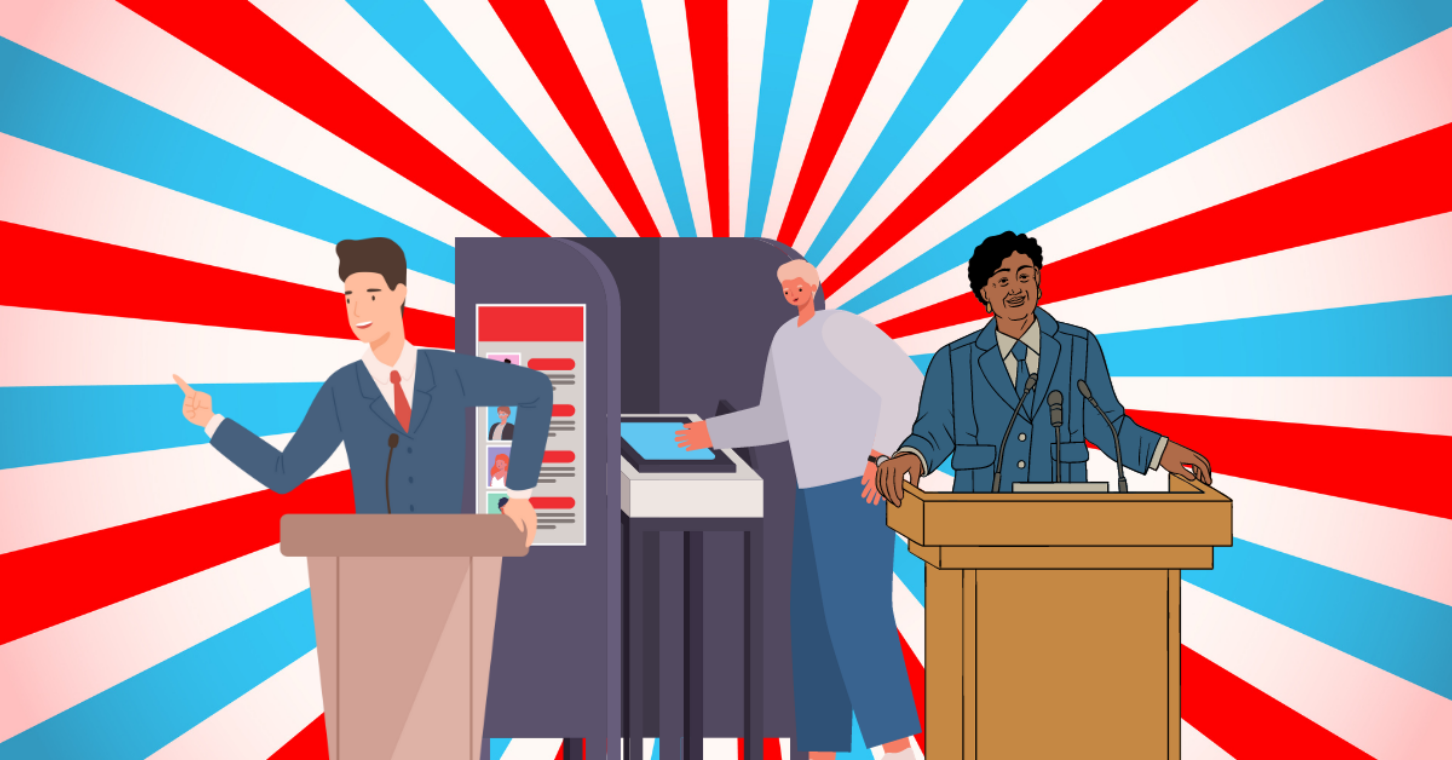
One of the best things about local elections is that they almost never come with TV ads. That may be the worst thing about them, too.
Georgia’s next Election Day is not in 2024. It’s next week on Tuesday, November 7th. For the last three weeks, early voting has been underway. And yet, this year’s municipal elections have come with none of the buzz Georgians have grown accustomed to in recent cycles – where campaigns are usually vigorously fought over the airwaves, in the mailbox and over text messages.
Most voters probably relish the reprieve. But it’s a double-edged sword: because although they’re not being bombarded with political ads as they watch, say, the Dawgs dominate the Gators, most viewers don’t know elections are going on at all.
This year, there are municipal elections in 139 of Georgia’s 159 counties, most of them nonpartisan. The races vary: many cities are holding mayoral and city council races. Some voters will decide whether or not to approve new local taxes for infrastructure, education and transportation. Others, including me, have school board races on the ballot.
Local elections may have a PR problem: often voters take “local” to mean “inconsequential.” With the lack of well-funded campaigns to drive awareness, it’s easy to see why turnout is routinely low – but it doesn’t excuse it. Local elections decide the direction of everything from school curriculum, to police response times, to annual tax burdens – and an engaged citizenry, as our Founding Fathers envisioned, is necessary to preserve our communities and our nation.
As of this writing, just over 90,000 Georgians have cast a ballot so far in 2023 – and although not every voter has an election, and voting is not yet complete, it’s still an anemic participation rate when compared to 2022, when Georgia had the highest turnout rate in the South and cast more than 3.96 million votes.
The perennial issue of low municipal turnout is only compounded by an already competitive 2024 election cycle. Most Georgians are currently considering who will earn their vote in the March primary – watching the polls, the fundraising numbers and the debate soundbites.
Given the gathering storm clouds, it’s valid to have conversations about who can get our country back on track next year. But as important as those decisions are, local elections also have a tremendous impact on the daily lives of our families, communities, small businesses – and our security and freedom.
Local officials do the dirty work: they impact education and help keep our community safe by managing local police and fire. They keep services like water, trash and transportation running smoothly. They regulate businesses through zoning and licenses. They decide how our hard-earned local tax dollars are spent – and what the priorities of our communities will be.
These are the decisions that, in many cases, can mean the difference between comfort and chaos. Atlanta’s Public Safety Training Center (known as “Cop City” to the violent protesters who oppose it), was approved only after a vote of the Atlanta City Council. Once completed, it will dramatically improve training and resources for the firefighters and police officers saving lives in our communities every day.
I encourage every Georgian to take some time to get to know what’s on the ballot in your city this year – and then do your research. If you’re a Brookhaven or Valdosta resident, you have a hotly contested mayoral race. If you’re in Augusta, you can vote on a 0.05% sales tax to fund the construction of a new arena. And, if you live in Warner Robins, you’ll decide whether alcohol can be served at Sunday brunch.
I got to know some of this year’s candidates over the summer, when my voter mobilization group Greater Georgia worked to recruit conservative candidates to run for local office. More than 100 individuals signed up. They came from all walks of life, from all across the state: working moms with kids, full-time business owners, even young people fresh out of college.
They weren’t running to climb the ladder to higher office. Most had no political experience at all. But what they did have was a real passion for the communities they loved – and a real drive to make them better.
These are the Georgians you won’t see on TV this year – but they’re the ones who will make a difference come November 7th.
Kelly Loeffler is a former U.S. Senator from Georgia.